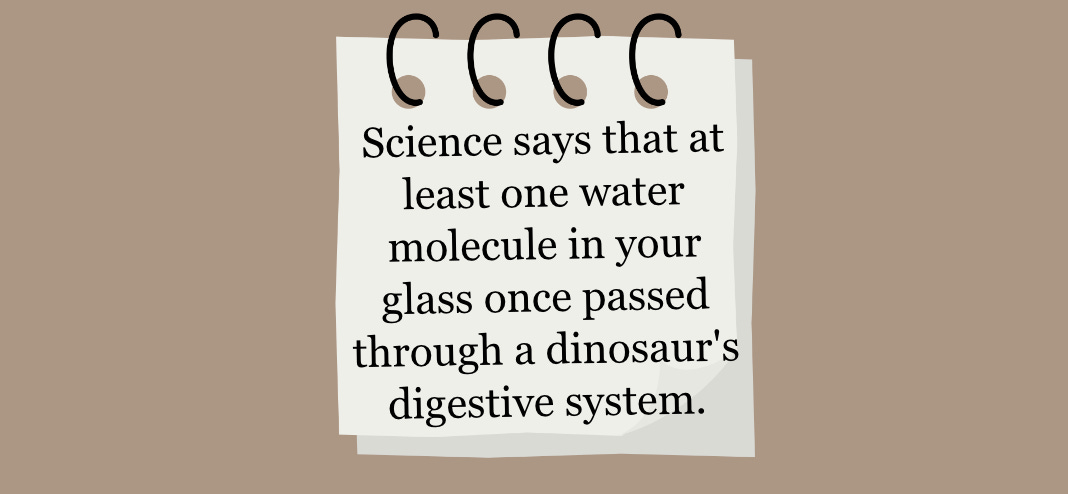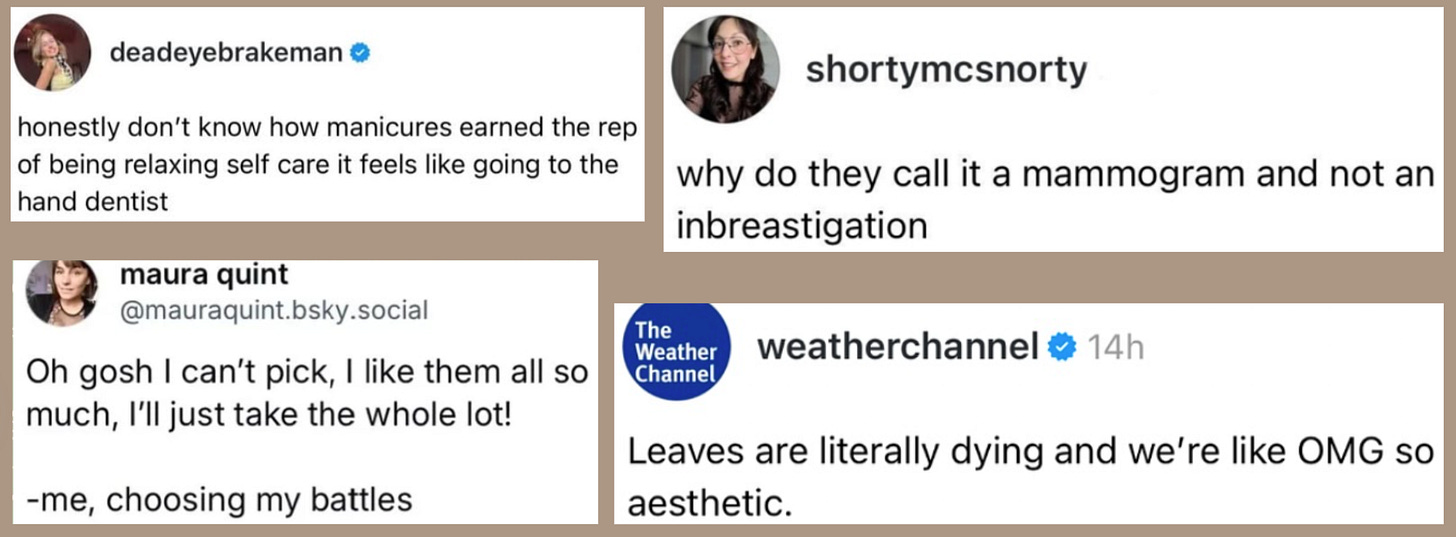Thanks, But Please Don’t Look at Me
A ‘Fawner’s’ Guide to Deflecting Praise and Dodging Feelings
The first day of fall dropped this week, and our fireplace made its grand debut right on cue. I damn near exploded with excitement when it was finished because holy sh*t, my contractor is so talented.
I keep walking by the fireplace just to smile and flirt with it. Like, “Hey gurllllll. Looking good.”
And before any of you start roasting me (pun intended) with “You live in LA, what do you even need a fireplace for?” First of all, it does get down to a bone-chilling 60 degrees sometimes. And second of all, everyone knows fireplaces aren’t just about warmth—they’re about the vibes. The aura. The perfect excuse to sip something fancy and pretend you’re in a Nancy Meyers film. Or as I said last week, just another way to romanticize your life.
I’ll never look at water the same again.
Quotes from a therapist on TT (@therapydebbie):
-Healing will cost you the relationships that only worked when you abandoned yourself. The connections that relied on your silence, people-pleasing, or overextending won’t survive once you start honoring your needs.
-Doing more won’t fix the core belief that you’re not enough.
-The emotions you avoid will find other ways to be felt.
-If you never slow down, your body will eventually do it for you—through illness, burnout, or collapse.
-Closure doesn’t come from explanation—it comes when you stop needing one.
-Venting is not the same as processing. Talking about it over and over isn’t healing if your body feels the same.
-There’s a difference between healing your triggers and avoiding them.
-Not everything that feels “safe” is good for you. Familiar doesn’t mean healthy. And your nervous system needs time to tell the difference.
Nobody Knows You’re Here: Just started reading this yesterday, and almost halfway through. It’s definitely a page turner. Will share more next week when I finish it.
Derailed: I watched this 20 years ago and saw it again last weekend and it still holds up well. Despite the cheesy movie poster, this is a good psychological thriller if you like those.
My earliest memory of deflecting praise was when I was six years old. I was loitering in the hallway of Chesterfield Elementary, with off-white cinderblock walls, motivational posters about “reaching for the stars,” and that weird industrial carpet that always smelled like crayons and feet.
It was parent-teacher conference night, and I was posted up outside Ms. Glenn’s classroom while my parents were inside learning just how brilliant I was (or, more accurately, how well I followed directions and colored inside the lines).
They came out glowing—full-on beaming—telling me that Ms. Glenn had sung my praises and that I had straight A’s.
And without missing a beat, six-year-old me shrugged and said, “Oh…she’s probably just being nice.”
Like, what? Who says that at six?
I hadn’t even lost all my baby teeth, and I was already out here deflecting compliments, doubting praise, and cringing at the idea of being perceived.
Fast forward a couple of decades, and not much has changed.
If there were Olympic games for avoiding praise, I’d probably still find a way to embarrass myself during the medal ceremony. Compliments have a peculiar way of making me squirm, stumble, and launch into an elaborate dance of deflection. Some people bask in the warm glow of admiration; I, however, prefer the cool shadows of humble denial.
Well, at least humility is the lie I’ve loved to tell myself.











